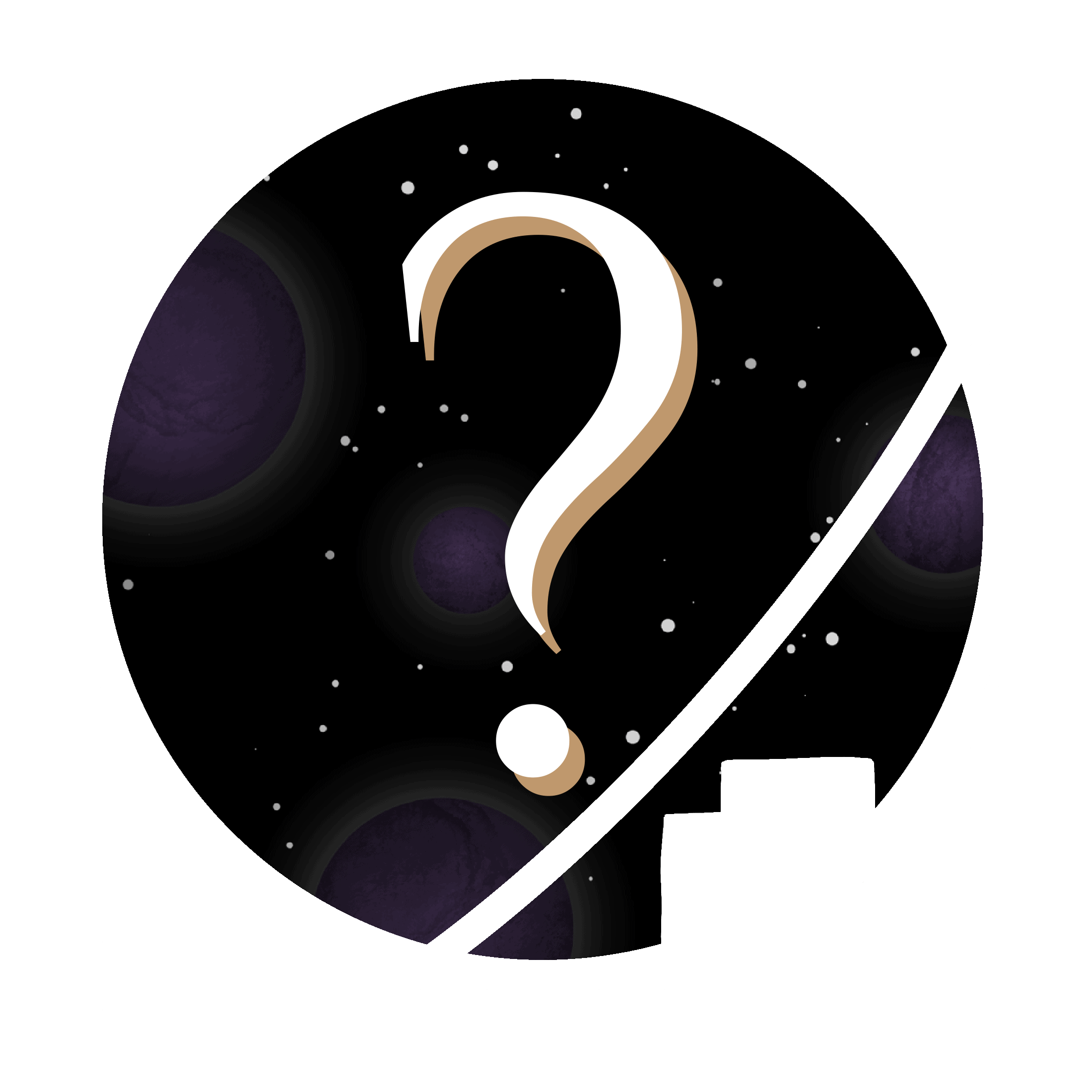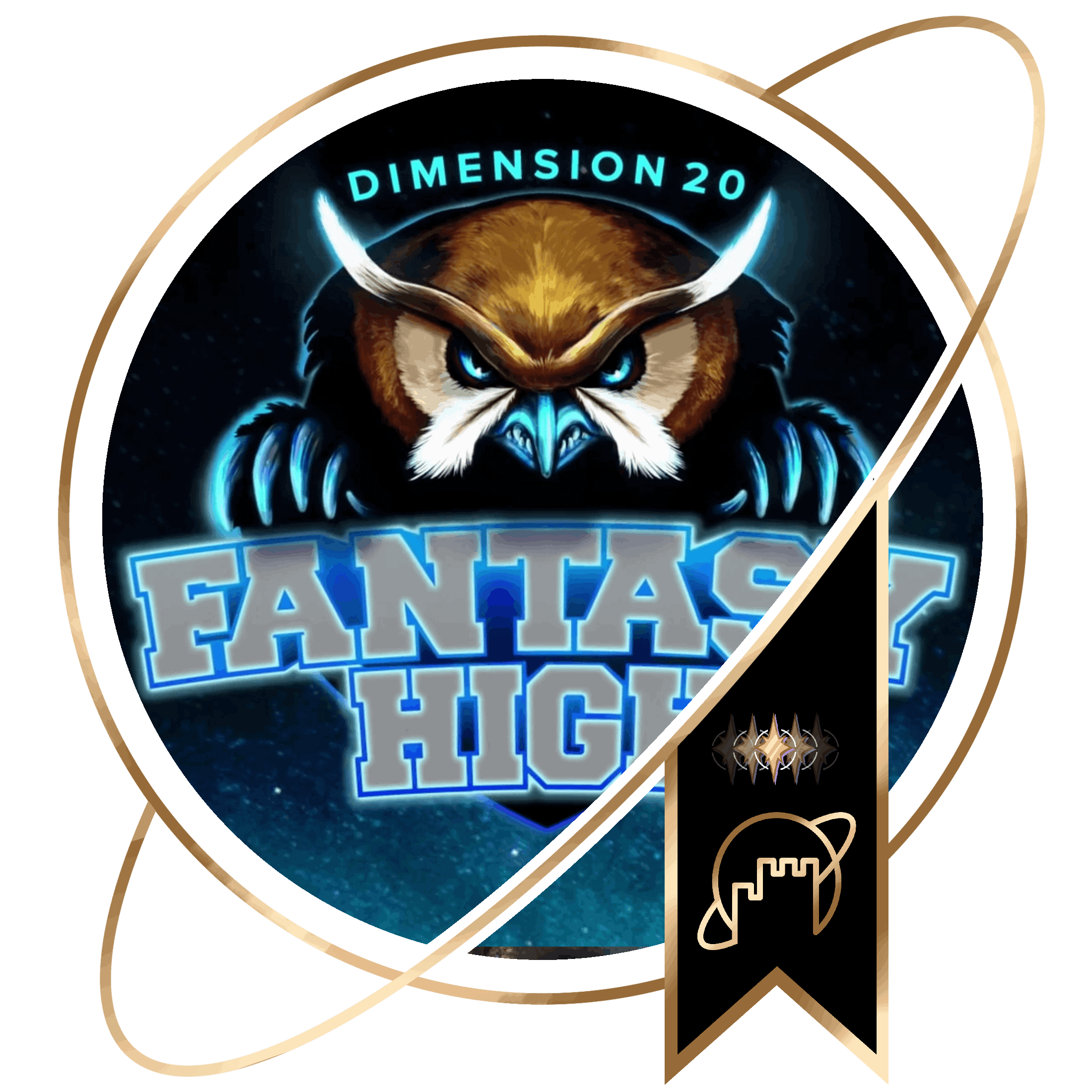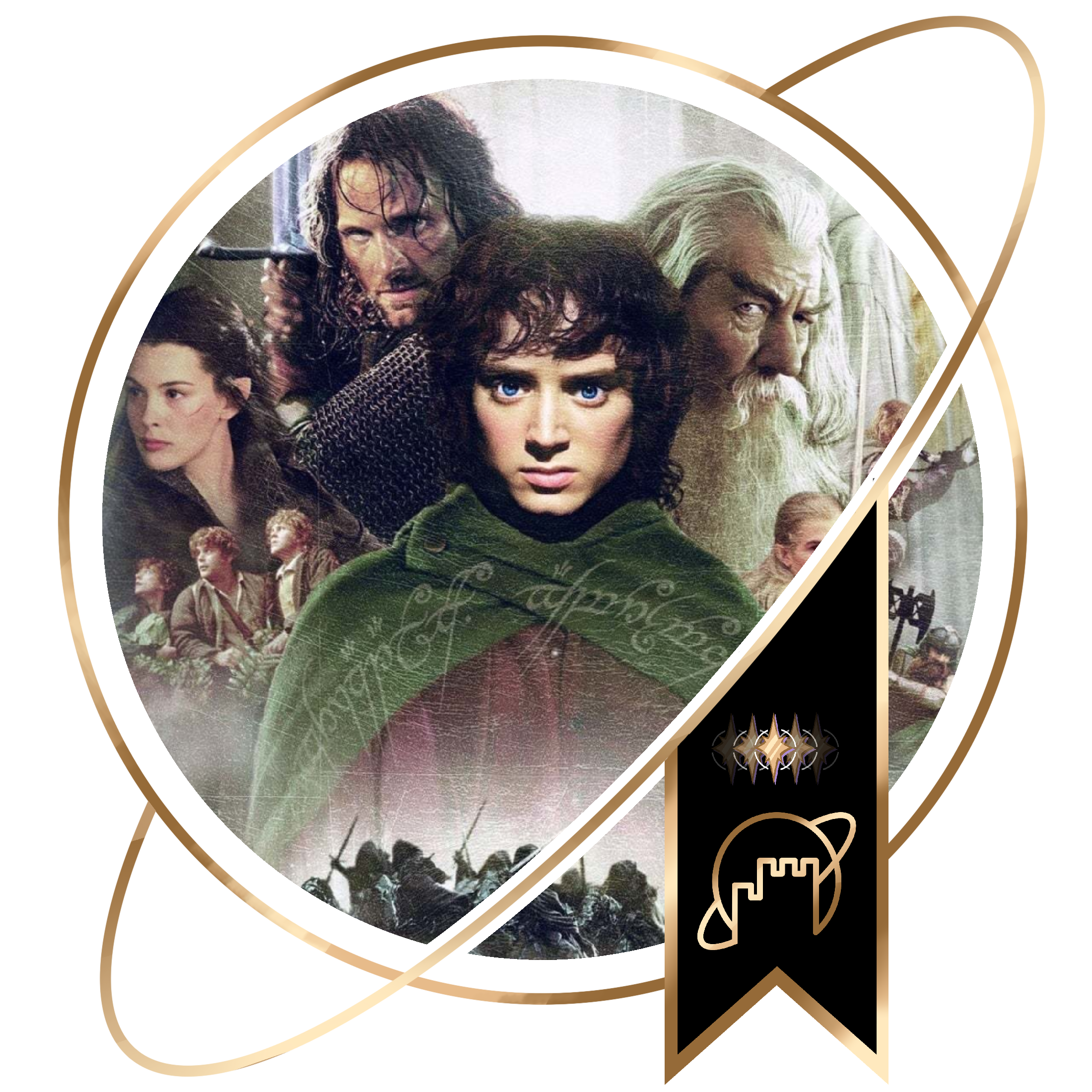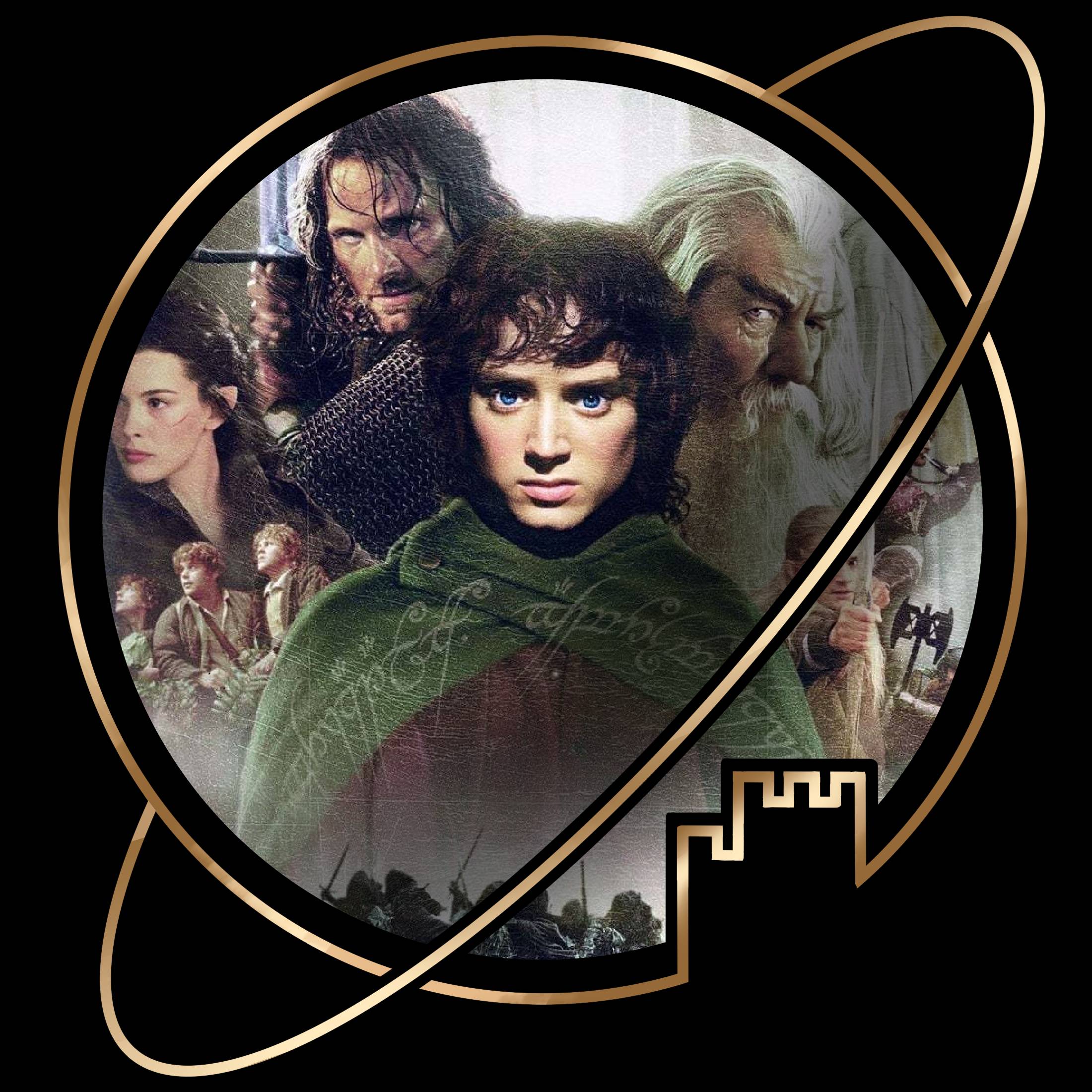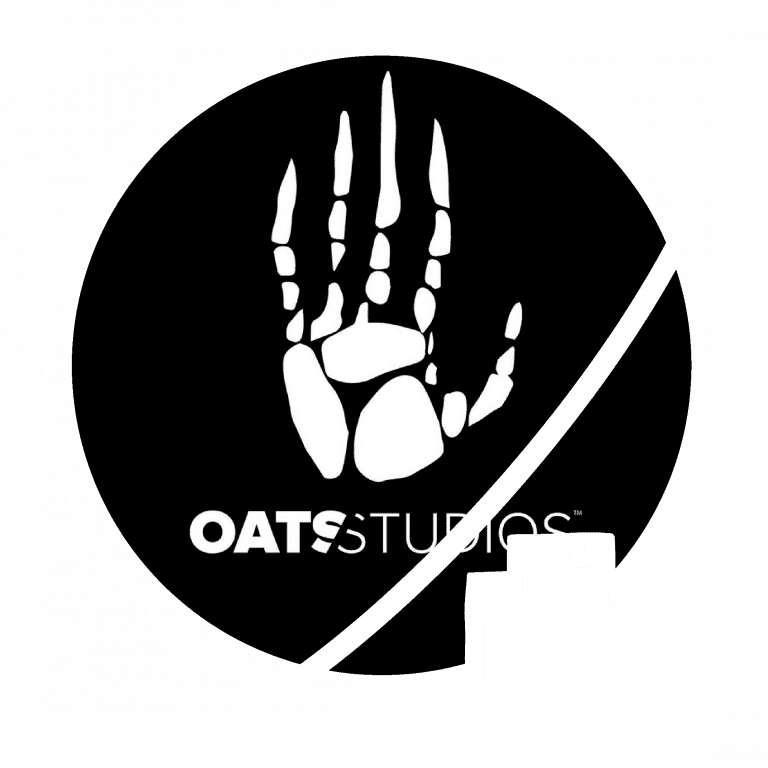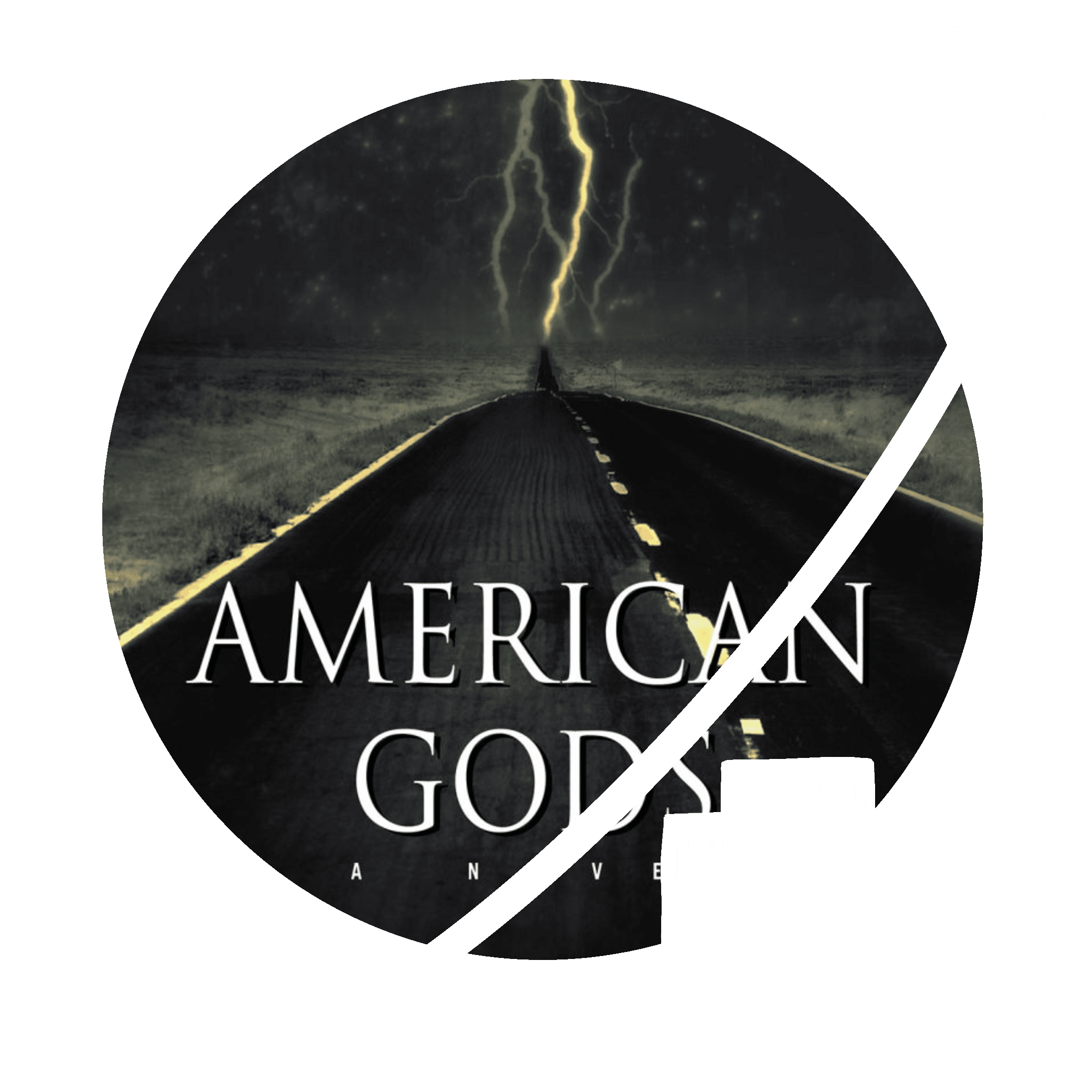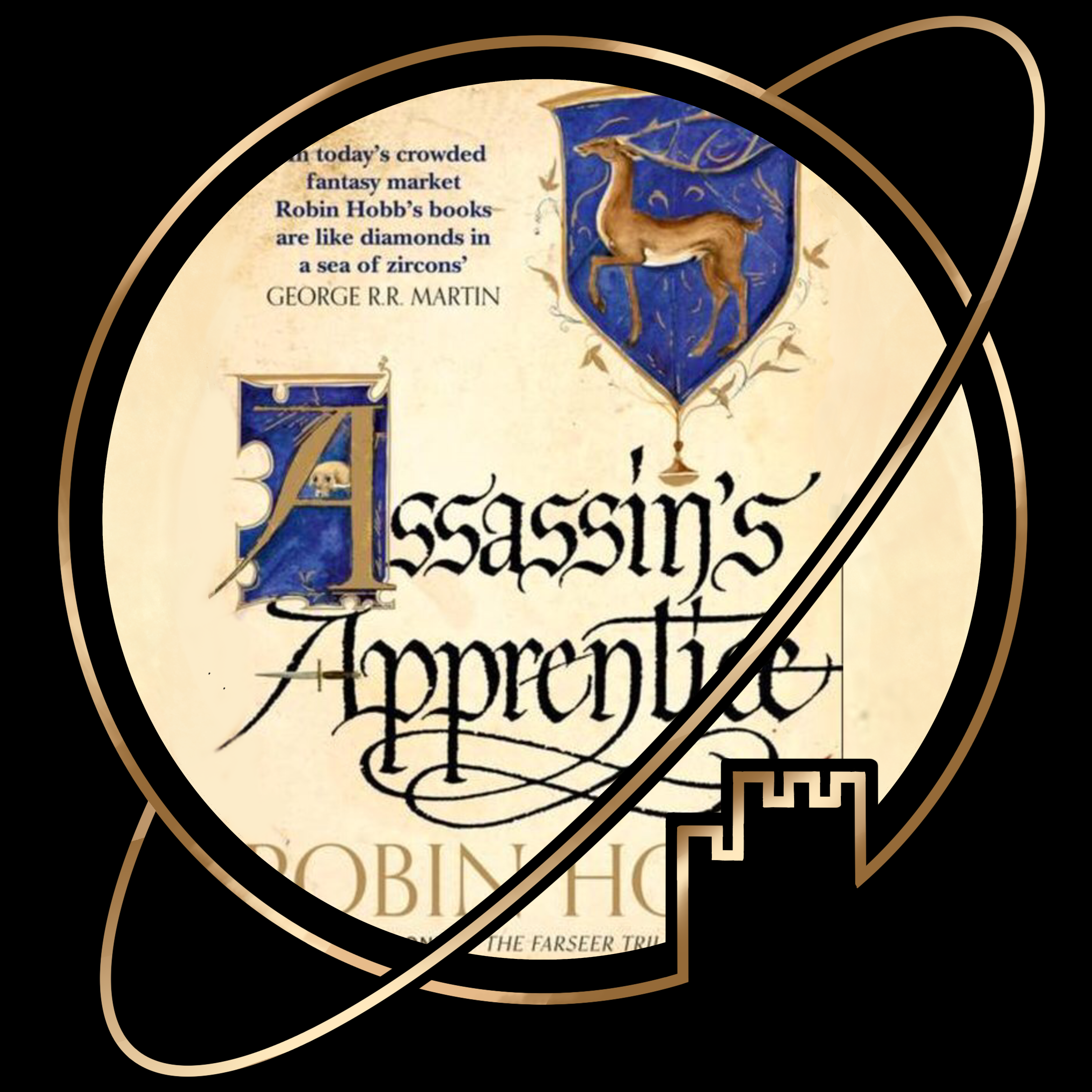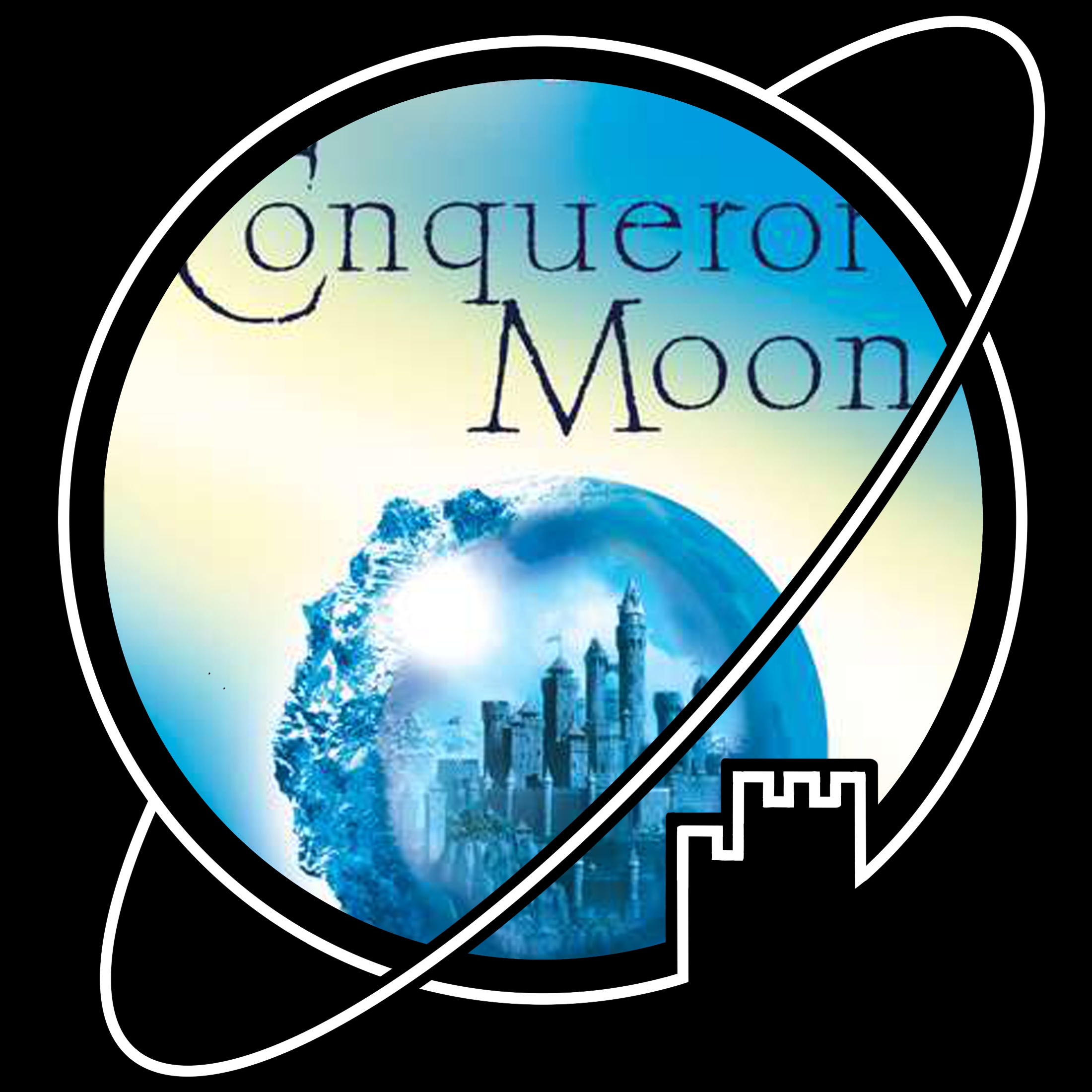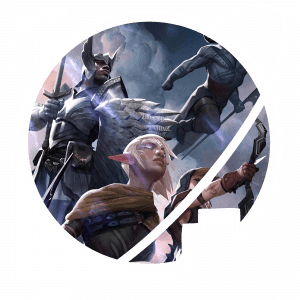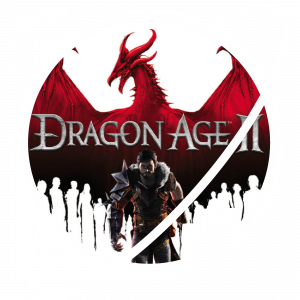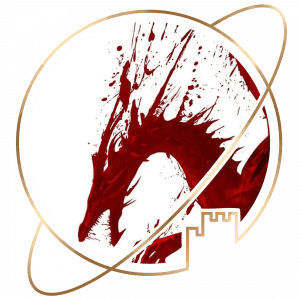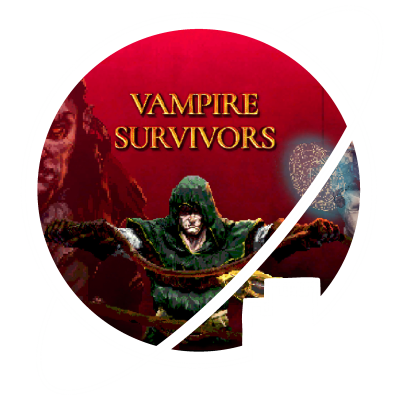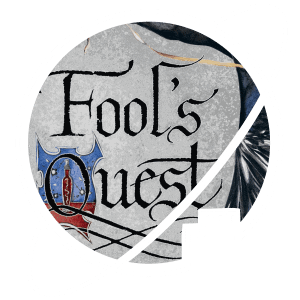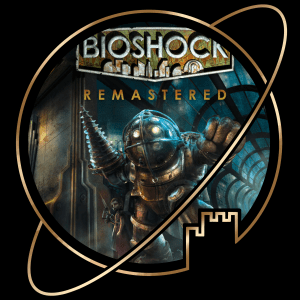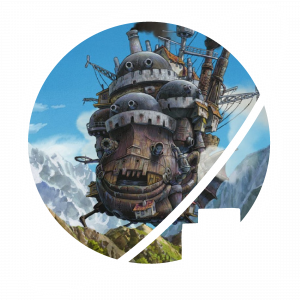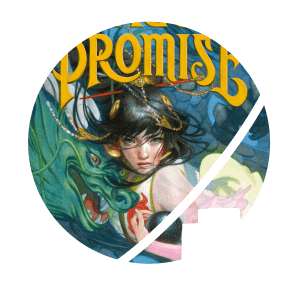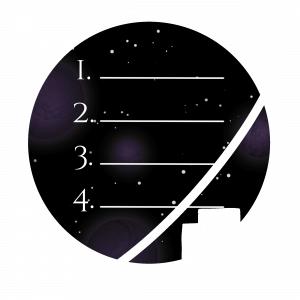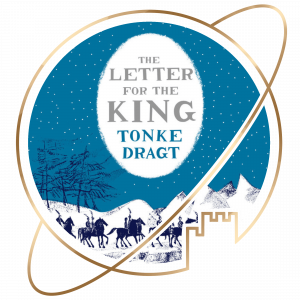Welcome to the Escape Velocity Collection!
We are an opinionated group of friends reviewing all sorts of fantasy and science fiction media. Don’t forget to get to know the curators and visit our curated Collection, where we discuss the stories that never cease to transport us to another world.
Will you escape with us?
LATEST POSTS:
Time to get to know the Escape Velocity Collection’s curators! How? By asking them the questions that really matter! Let’s see what our curators have to say…
This week’s question is:
What did you think of the first episode of The Rings of Power?
My verdict of the first episode is that it is hit and miss, but more hit than miss and certainly a whole lot better than what I was expecting based on the teaser we’d seen.
Some of the hits: the gorgeous establishing shots and most of the environments, Galadriel, cloak pins, the traveling via the map. Some misses: Elven haircuts, weapons that go SCHWIIINGGG at the merest touch, my god what cardboard armour are they wearing at that ceremony, that one human village (just because they’re not elves doesn’t have to mean they don’t know how to build a fence straight, how to sow clothes that fit, or how to shave).
I’ve come to the conclusion that I should just treat this as a really high budget fan fiction set in Tolkien’s world and not expect them to stick to established canon too much and so far that’s helping a lot. Pet peeves aside, I’m looking forward to watching the rest of it and seeing where they’ll take this!
Despite my low expectations, I actually really enjoyed it. In fact, I’m even excited to watch the rest!
The writing was not exceptional, and my inner Tolkien purist certainly frowned at certain lore decisions within the story. All in all, however, these imperfections didn’t bother me that much.
I have to conclude that I might simply be a basic Middle-Earth fangirl. They gave me a glimpse of ents, unnecessarily eloquent elves and beautiful landscapes, and I was just happy to be back in Tolkien’s wonderful world.
The viewing experience might have played a part in it, because it turned out we magically all fit exactly on Peter’s couch, but I was entertained. The pace was slow, but not in a nothing-is-happening kind of way and the music supports the atmosphere of the scenes. Also, we have a badass female protagonist.
I actually was disappointed we couldn’t watch the second episode directly after the first one. Exited to see where the series is headed.
I didn’t have very high expectations of this, but also I’m not some sort of Tolkien purist, so the bar wasn’t too high for me.
I definitely enjoyed the first episode! I’ve grown a little bit tired of elves and their whole vibe, so everytime an elf said something pretentious my brain instantly went to that video of Fantasy High dunking on elves for twenty minutes . Not sure if it would have bothered me that much if that video didn’t live front and center in my brain, but I really noticed it during this first episode.
I have to agree with Jop that it’s just really nice to be back in a world that inspired me so much as a child. I, for one, can’t wait to see the rest of the show.
Going in I fully expected to be disappointed, but like my fellow curators I was pleasantly surprised! I liked that the pacing was a lot slower than most major tv-shows in this genre. It did not throw you into the middle of some flashy, attention grabbing actions scene, but instead it took its time and followed its own pace. I’m very excited to see where it will take us!
That’s it: another soul-searching question answered!
Still curious? Visit each curator’s page to see what they’ve recently been up to!
Check out our reviews of the media discussed in this post here:
- Collection of short films by Neill Blomkamp
- Released in 2017
- Starring Sigourney Weaver, Sharlto Copley, Dakota Fanning, and others
- 9 Projects
This assembly of short (and some really short) films by South African director Neill Blomkamp is a bit of an oddity on Netflix – it’s not a series so much as an assemblage set of cinematographic thought experiments, some more developed than others, but they give some interesting insights into what moves Blomkamp as an artist.

When playing video games, I tend to be a bit of a completionist. Despite many Dutch people saying they’re going to ‘uitspelen’ (finishing a game, literally, ‘to play out’) Netflix if they have some time off, with the amount of content offered, that isn’t really a possibility. Still, I did want to finish all Neill Blomkamp content on Netflix, so I ran into Oats Studios, which is number of Blomkamp’s smaller projects heaped together and put online. I hesitate to call it a collection or an anthology because there does not really appear to be an overarching theme or even style or format. Still, Key and I settled in for a night of varied Blomkamp viewing, ready to be surprised.
Oats Studios is to disparate a set of films to review together, so here’s a couple of lines per project below – I’ve rated the whole thing three stars, assuming you’ll skip over most of the trashy or forgettable stuff.
Rakka
Worth watching – a post-apocalyptic, post-first contact setting in which the earth is taken over by a hostile alien species and rag-tag bands of human survivors are left to make a home in the ashes, resisting as well as they can. Mostly follows established tropes, but there are a couple of interesting concepts and story hooks, though being just over 20 minutes long, the story sadly only scratches the surface and doesn’t knock down its own set up. Ends making you want more. Also surprisingly features Sigourney Weaver!
Firebase
Also worth watching – mixes some beautifully weird occult/paranormal and sci-fi elements into a Vietnam war setting: a CIA operative is sent into the jungle to find the lone survivor of a unit of U.S. troops absolutely massacred by Viet Cong with what appears to be an incredibly advanced Soviet weapon system. Oozes Heart of Darkness/Apocalypse Now in atmosphere. Again, feels like a great set up but doesn’t quite get to the pay-off – but that’s short movies for you.
Cooking with Bill
Skippable – some cringey/gorey sketches spoofing teleshopping ads for imaginative kitchen products. Not bad at what it is trying to do exactly, but not at all my taste.
God
Skippable – a couple of sketches showing God as a careless overlord throwing random disasters at his worshippers for his own amusement. Neither particularly original nor well executed. Thankfully not to long either.
Zygote
Worth watching – Disaster has struck a distant mining outpost, and two survivors are trying to get to safety, pursued by a great original monster that I’m not going to spoil for you. Follows established tropes, crams a bit much exposition and social commentary in its first five minutes, and I feel like the set builders could’ve done with a bit more budget, but has all the makings of a blockbuster sci-fi horror movie – and it’s only 22 minutes long, so some allowances have to be made. Really what holds this back most is that Blomkamp shows his hand prematurely – it would’ve probably worked better if he had held back the monster a little longer (for a masterclass: see Ridley Scott’s Alien)
Bad President
Skippable – a couple sketches showing the president of the US as a trashy guy that prioritises parties over running the country and shows up to the Oval Office hungover. Not not funny, but that is about all there is to be said about it.
Adam
Worth watching – Netflix only has episodes II and III of the Adam storyline, since Episode I wasn’t directed by Blomkamp. So you’ll have to watch episode I on YouTube (where episode II and episode III are available as well). This is apparently a bit of an out of control tech demo for the Unity game engine that turned into a real story. More than with any of the other stories, you might leave feeling frustrated that there is no game or movie finishing what these three episodes started. The graphics are slightly dated by now but the world and character design are still great.
Gdansk
Literally a four minute tech demo. Looks cool.
Kapture: Locust
Skippable. Another tech demo, though this one is a lot more cheesy (while also casually really violent) than the others. Also looks worse.
If there is anything of an overarching takeaway, it is that Blomkamp loves gore and guns, and will not miss an opportunity to put them front and centre in his films, at the expense of the deeper message that he does seem to want to send. Also, he loves cyborgs and exploring the borders between man and machine. But maybe all that is already apparent from his other works we reviewed.
Overall, a bit of a mixed bag, but well worth watching if you feel like an evening of low-threshold, low commitment, but throught-provoking television. Especially the longer and more serious stories Rakka, Firebase and Zygote are well made and made me wish there was more. If you go on YouTube for the other parts, Adam isn’t too bad either.

Oats Studios is a collection of director Neill Blomkamp’s idea’s that were never developed into something big. And they are exactly that: interesting (and less interesting) ideas. Don’t expect neatly tied-up story arcs or well thought-out worldbuilding (if you can speak of any of that in the other Blomkamp movies…). For stories so incomplete, I was surprised by the amount of great actors and performances, the special effects and the production in general. The themes I could discover throughout the season were typical Blomkamp: guns ‘n gore, goo, plugging machines, experimental medicine, human hubris and AI consciousness. The season provided a nice evening with Peter, but no more.
A short review of the episodes (I left the descriptions to Peter):
Rakka
Felt very unfinished to me, even for this series. An interesting start, then another one, and then another one, but without something to connect the dots.
Firebase
Apocalypse Now meets Rambo. Interesting and slow setup, but then a quick reveal. That might be because because in contrast to the other episodes, this one had an end goal in mind that was tied to a strong theme.
Cooking with Bill
A cringe fest of sketches. First one was predictable, but good. The rest was unnecessary.
God
A two-parter with not much originality and no point. Could have been interesting when well-executed and with something to say.
Zygote
I love this trapped-in-a-spaceship kind of stories. It might be easy, but it works. However, the more I thought about it, the less good it became. There were quite some plotholes, it acts only as if there is social commentary, and after the (early) reveal the monster was a bit too ridiculous to be truly scary. Nevertheless quite enjoyable watch, who know what could have been when this were a feature film.
Bad President
A bit like God. Not really funny, not really original, not really a point. Moreover, reality has become too absurd to parody like this.
Adam
I liked these two episodes the most. It really felt there was a world behind this short story. And there is, to some extent: there is already a prequel short film (on YouTube). These three short stories build an interesting and original scifi world and deal with moral dilemma’s about killing consciousness and religion that feel true. However, they also feel als pure setup for a greater story, without a resolution of their own. Would have loved more of this.
Gdansk
Knight from Middle Ages meets space ship. He has shiny armour. The end.
Kapture: Locust
Cruelty with a thin layer of social commentary. I don’t see a larger story in this, but it might have worked as a scene in a movie about something else. Reminded me a bit of Squid Game.
Tagged:
See also:
Time to get to know the Escape Velocity Collection’s curators! How? By asking them the questions that really matter! Let’s see what our curators have to say…
This week’s question is:
What Fantasy/Sci-Fi Author is most well-represented on your bookshelves, and how do you feel about that?
I recently moved and when I was putting books back in my bookcases (and trying to figure out logical ways to sort them), I was wondering who takes up most shelf space. I did a quick count to find out that Julian May narrowly inches out Tolkien with eleven books to ten. I figured I’d ask the other curators to do the same!
I was quite surprised by the result (and a bit ashamed to admit that I haven’t had the chance to read most of those May books yet…), but really May coming out on top is largely due to recent thrift store finds. It’s just that I loved the Saga of Pliocene Exile and since her books aren’t in print anymore, I pick them up any chance I get.
For me, it seems to be a tie between J.R.R. Tolkien and Robin Hobb, with an impressive (or shocking?) number of sixteen books each. Tolkien would win if I also counted several encyclopedias of Middle-Earth that were technically not written by him, but simply collect his worldbuilding notes. Alternatively, if I were to attribute The Children of Hurin to Christopher Tolkien instead of his father, Robin Hobb would win.
I’m quite pleased with the end result either way, I must admit. Robin Hobb, being my favourite author, certainly deserves the whole bookshelf I’ve dedicated to her. In fact, I would gladly welcome some new additions. On the other hand, Tolkien is one of the primary reasons I fell in love with Fantasy in the first place. Middle-Earth will always have a place in my heart and my bookcases.
Addendum by Jasmijn: “In addition to your 16 books, I think we have some of my Robin Hobb copies lying around in our appartement as well, so in numbers she would definitely win in our household.”
Whether it is to be considered fantasy or not is an ongoing debate, but on my bookshelf Winnie the Pooh by A.A. Milne is very well represented. I love collecting the book in different languages as well, and since I know a lot of the stories by heart I enjoy reading those copies as well from time to time. The start of this collection was a Latin copy I happened upon in a secondhand bookshop. This was the beginning of the end, haha.
I’m not much of a book hoarder, to be honest. I live in a studio appartment and have moved around a bit, so I’ve had to keep the volume of books I own down as much as possible. I also have two sisters, so growing up our books were exactly that: OUR books. As a result, most books I have on my shelf now are recent acquisitions.
Robin Hobb and Terry Pratchett come in at a tie, with 6 books each. However, I’ve read two of the Robin Hobb books, and none of the Terry Pratchett ones. Let me explain:
I thrift most of my books. This means you never quite know which books you’re going to find. A long time ago, I found two beautiful hard covers of the last two books in the Farseer series by Robin Hobb. I only recently acquired the first book in that trilogy, so I wasn’t in the position to start reading them.
Half of the Terry Pratchett books are a collaboration he did with Stephen Baxter. I thought it was a series, but there’s no discernable order to them, so I’ve never picked one up to read. I just don’t know where to start. When you have plenty of other books still to read, that’s a little bit of a death sentence. The other three are The Colour of Magic, and two more books in German. I can mostly read German, so I figured I’d give them a try. Can’t guarantee I’ll have understood them well enough to review them, though…
After I counted I was not surprised that Robin Hobb was at the top of my list with 12 books, considering she is my favourite fantasy author. However, it did surprise me that Neil Gaiman followed closely at 10. I don’t have one long shelf dedicated to his work as I have with Robin Hobb, but instead his books have infiltrated the different shelves where I keep my fantasy novels, short story collections, childrens books, graphic novels, and books about mythology. I did not even realise how many of his books I have picked up over the years! But I have enjoyed every single one, so I am happy to have them around.
First, I must excuse myself, because I am not an owner of many sci-fi or fantasy books. Most I read, I lent from others or I listened to them. The second excuse: I regularly clean up my bookshelves and do not keep every book. So, with that out of the way, what do I have left? A whopping 5 books of Douglas Adams, namely the whole Hitchiker’s Guide to the Galaxy-series (without the 6th of Eoin Colfer). They are however easily matched in volume by three George R.R. Martin-books – which I did not read but my wife did. The good news is: there is room on my bookshelves for improvement!
That’s it: another soul-searching question answered!
Still curious? Visit each curator’s page to see what they’ve recently been up to!
Check out our reviews of the media discussed in this post here::
- Book written by Neil Gaiman
- Published in 2001
- Standalone
Whenever humans travelled to North America, be it via the ice of the Bering straight, the longships of Norse explorers, or slave ships ferrying enslaved Africans to misery on the plantations, they took their gods with them. When Shadow is released from prison and travels home to attend the funeral of his wife, he meets a mysterious and enigmatic man who calls himself Mr Wednesday and who offers Shadow a job as his bodyguard. In the service of Mr Wednesday, Shadow finds himself drawn into the world of those myths, legends and gods from bygone eras.
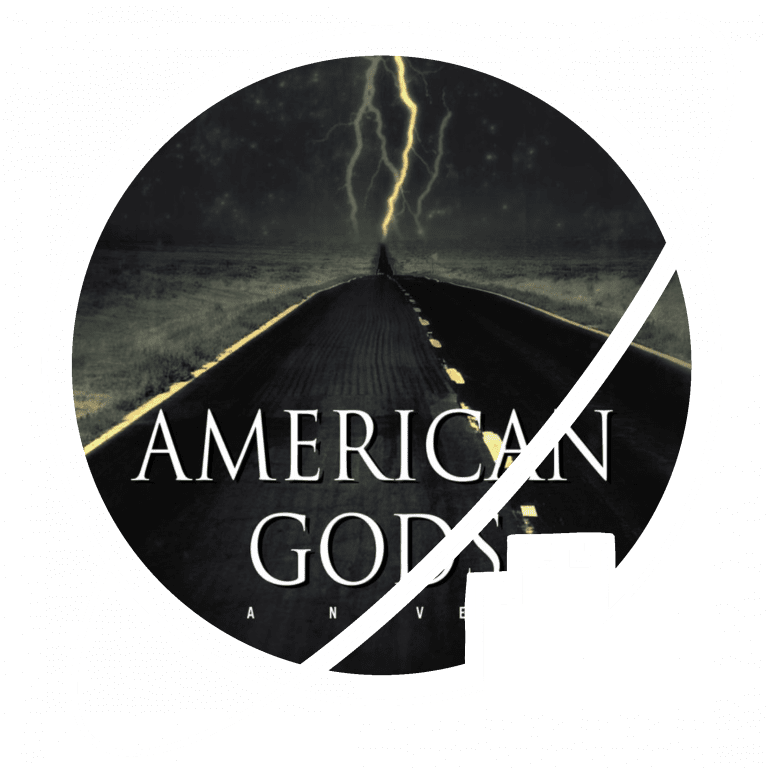

I was waiting for the American Gods-audiobook read by the author himself to become available on my favourite app, but when I saw they uploaded a full-cast version instead, I couldn’t hold back – if you like to listen to your books, I can whole-heartedly recommend it.
As I already wrote in my Update, American Gods has got to be the best thing by Gaiman I’ve read so far. Gaiman has a somewhat fairy tale-esque, at times silly style that sets him apart from all of the other great fantasy authors of our time, but that style isn’t always my cup of tea. American Gods is still very much Gaiman, but is a bit darker than his other works, and suddenly it fits my preferences much more.
Moreover, the book has a wonderful premise (’what happens to the gods of all the immigrants to the Americas?’), that Gaiman, rather than leaning on it heavily, expertly sprinkles over what is essentially a story about a mourning human character in this world. Gaiman keeps the mystery of the Gods alive throughout the book by closely guarding his secrets, never feeling the need to clarify anything, and by weaving in little vignettes throughout the story that make you wish for more.
I think it shows how great an author Gaiman is that basically nothing in this book is ever explained to the reader, but nothing ever feels out of place or deus ex machina. Shadow’s somewhat nihilistic outlook goads the reader into accepting whatever comes at him, however impossible, and rolling with it. The result is a book that is featherlight on worldbuilding or ‘rules’ but rock solid in atmosphere and character, with a very satisfying conclusion and – in the 10th anniversary edition – some lovely little epilogues.
American Gods was recommended to me by pretty much anyone who ever read it, and now I am finally ready to join the ranks of those missionaries. Oh, and I can finally watch the Amazon adaptation!
Welcome to another playlist! This playlist is a collection of songs either inspired by Hawke from Dragon Age, or songs that I feel they might enjoy. I made it for when I need to feel more confident, and for some reason pretending I’m Hawke from Dragon Age does just that.
This playlist is mostly inspired by my personal playthroughs of Dragon Age 2, in which I made choices that may differ from other players. Wanna know what choices I made? Why not listen to find out?
Find the whole playlist on Spotify:
Check out our other posts about Dragon Age here:
1 - Hawke Family Theme - Inon Zur
The soundtrack to this game is absolutely phenomenal and does a great job of establishing the atmosphere of Kirkwall. Of course I had to include this.
2 - Hurricane - The Fray
I’ve always found Hawke to be a very inspirational character because I, too, would like to be a bit of a menace. I feel this song does a good job of explaining how other people may have seen Hawke.
3 - Young and Dumb - the bird and the bee
I don’t think this one needs much explanation. Hawke is living their best life and definitely isn’t thinking every decision through as well as they maybe should.
4 - Everybody Loves Me - OneRepublic
Look, I like to play my Bioware main characters as these humble little angels that just happen to stumble into being a hero. With Hawke? Not so much. I love playing Hawke as very self-aware and a little conceited. This is especially funny if you consider the fact that Hawke only really saves a city, whereas in Origins and Inquisition your’re basically saving the world.
5 - Next To Me - Imagine Dragons
We all know Biowware games would be nothing without a fun cast of companions to talk to. I can imagine Hawke is definitely grateful to her friends for always having her back.
6 - Counting Stars - OneRepublic
I genuinely don’t quite know why this one is on the list except that’s it’s fun and upbeat, and I think that Hawke would like it.
7 - DIfficult - Peppermint Ollie
I romanced Isabela, but honestly? This song could describe Hawke’s relationship with all of their friends.
8 - Hard to Be the Bard - Christian Borle, 'Something Rotten' Ensemble, Wayne Kirkpatrick, Karey Kirkpatrick
This one goes out to my man Varric. It’s sexy but it’s hard!
9 - Get Down - SIX, Genesis Lynea
This is another song that’s just a fun bop with a Hawke vibe.
10 - Come And Play - Masquerade - Petra Nielsen
Another fun bop! Hawke would want you to be yourself.
11 - Heroes - David Bowie
They’re heroes, babeyy!
12 - Flaws - Bastille
If Hawke and their companions are anything, it’s flawed.
13 - Jenny (I Wanna Ruin Our Friendship) - Studio Killers
Hawke and Isabela
14 - Don't Stop Me Now - Queen
Do I even need to explain this one? Also, I recently discovered this is a great Karaoke song for me.
15 - Toy - Netta
Some people hated this song, but for me it’s just the right level of zany. Just a little weird, like Hawke.
16 - Black Belt - John Grant
If anyone has a black belt in BS, it’s Hawke.
- Video game developed by Luca Galante
- Directed by Luca Galante
- Published by Luca Galante
- Steam Early Acces 17 December 2021
- SHMUP (shoot 'em up)
- Platforms: Microsoft Windows, MacOS, iOS, Android
- Playing time: 5 to 100 hours (or as much as you can sink in!
This dirt cheap indie SHMUP has you control a little pixel-art vampire picking up weird and wondrous weapons and items as ever-increasing swarms of enemies try to get you – until eventually either you are overrun or the screen is filled with explosions, disappearing enemies, and XP gems.

Vampire Survivors is one of those games that seems to have no right to be as good as it is. It is as barebones as a game can be. The gameplay is literally limited to pressing WASD and picking elements of your build. That’s it. That’s all the player input you’re going to be giving. And yet…
I wouldn’t describe the gameplay as ‘deep’. But it is definitely fun! The core gameplay loop is building up a character with different weapons and power-ups as the enemies coming for your grow ever bigger and more numerous. After thirty minutes (if you survive that long), the grim reaper gets you and the run ends. During the run, you earn a little gold that you can spent on power-ups or new heroes for your next runs.
I’ve spent over 40 hours on this game (it hurt a little writing that), and there are still a tonne of unlocks and secrets left. In particular, the game has a mechanic where combining certain weapon pickups with item pickups ‘evolves’ the weapon into a more powerful version of itself, which means that sometimes you need to unlock a string of different elements before you can get to the most powerful (and weird) weapons in the game.
And that is where the fun is – trying out and unlocking ever weirder builds, doing runs without certain powerful weapons, trying to get matching items and weapons to evolve your entire loadout, etc. If you do it right, by the end of your thirty-minute run your character’s weapons will fill the screen with bright flashes and explosions, and enemies won’t be able to even get close. There is great satisfaction in just vaporising swarms of enemies into little XP-gems.
I’ve needed something to keep my mind occupied which causes exactly 0 stress lately and Vampire Survivors is just perfect. For me, this game epitomises what a simple indie game should be. Simple gameplay. Great pixelart. And a price below 3 euros.
At that price, there is no reason why you shouldn’t give it a shot. And even if you get bored after three runs… you’ve still paid less than a euro for each!
Tagged:
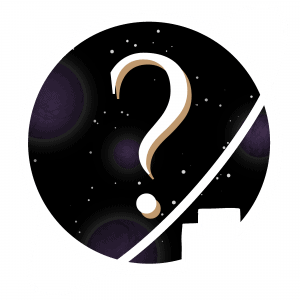
Curator Question: What did you think of the first episode of The Rings of Power?
Our curators watched Amazon’s new Lord of the Rings show The Rings of Power, and share their first impressions!
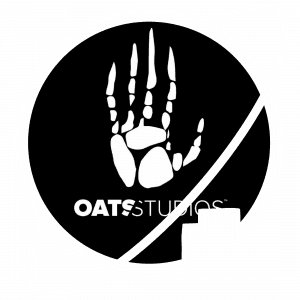
Review: Oats Studios – Neill Blomkamp
This assembly of short (and some really short) films by Neill Blomkamp is not a series so much as an assemblage set of cinematographic thought experiments that gives some insights into what moves Blomkamp as an artist.

Curator Question: What Fantasy/Sci-Fi Author is most well-represented on your bookshelves, and how do you feel about that?
Our curators count the books on their shelves, and reflect on the results. What Fantasy/Sci-Fi author is most well-represented?
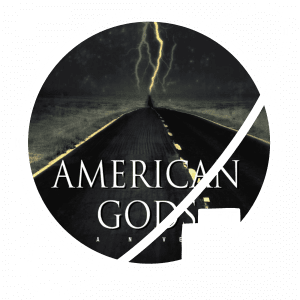
Review: American Gods – Neil Gaiman
When Shadow is released from prison and travels home to attend the funeral of his wife, he meets a mysterious and enigmatic man who calls himself Mr Wednesday and who offers Shadow a job as his bodyguard. In the service of Mr Wednesday, Shadow finds himself drawn into the world of myths, legends and gods from bygone eras.
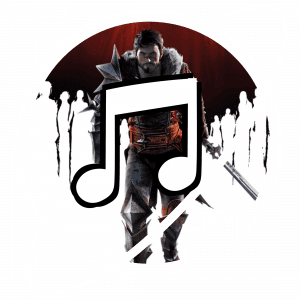
Playlist: The Champion of Kirkwall
Need something new to listen to? Why not try this playlist inspired by Hawke from Dragon Age 2, curated by Lotte?
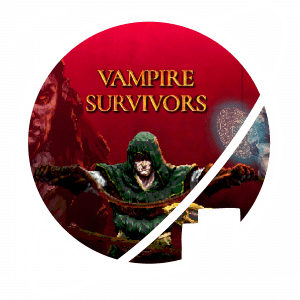
Review: Vampire Survivors – Luca Galante
This dirt cheap indie SHMUP has you control a little pixel-art vampire picking up weird and wondrous weapons and items as ever-increasing swarms of enemies try to get you.










